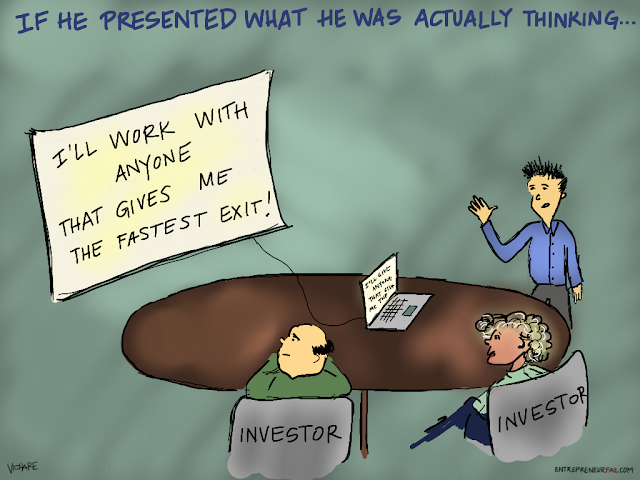The Truth about the role of an Entrepreneur
Scour the profiles across LinkedIn and you'll be blinded by the countless "Entrepreneurs", and "CEOs". Rummage through the business cards you collected at the last networking event and you’ll find an endless sea of "Founders", and "Owners".
While non-entrepreneur types may be impressed by these lofty titles, the rest of us can see right through you. Those lovely euphemisms actually stand for "monkey", "gopher", "donkey" and various other creatures from the animal kingdom, and here’s why:
Monkey: Running around (sometimes aimlessly) fixing things
Gopher: Searching and fetching, then repeating the process
Beaver: Busy as one, sometimes biting off more than you can chew
Donkey: Getting kicked around by investors and customers
So who do you pretend to be, and who are you actually?
Learning from my Business Card Mistakes
When I launched my own business I instantly printed business cards emblazoned with my self-appointed title. I might as well as written “your royal highness Excellency”. I didn’t have a product but I had a shiny stack of glossy business cards declaring me as the head of the kingdom that didn’t exist yet.
What happened? Well within a couple of months, my logo changed, my website name changed, my company colors changed, and (gasp) yes my role changed. And here I was gazing at my pretty stack of unused business cards! I’m not committing that #entrepreneurfail again.
Alternatives to Business Cards?
I'm now here to overturn the conventional sport of printing and passing around business cards when you are just starting out. Now introducing the
MVP of a business card: No business card! This is what I recommend:
- Everyone has a smart phone. If you meet someone interesting, do the green thing and take a photo his or her biz card. Email the person on the spot.
- If they don’t have a biz card, compose a blank email before you go your separate ways. Ask them to fill out the To: field. You should fill out the cc: field with your own email. The subject can say: “Nice to meet you today. Stay in touch.”
- If email isn’t your style, ensure you have the LinkedIn app on your phone. As you meet an interesting person, ask them if they are on LinkedIn and before you bid adieu send them a request as a contact.
Do you have business cards? What do they say? Do you find them useful? Let us know in the comments below.



















